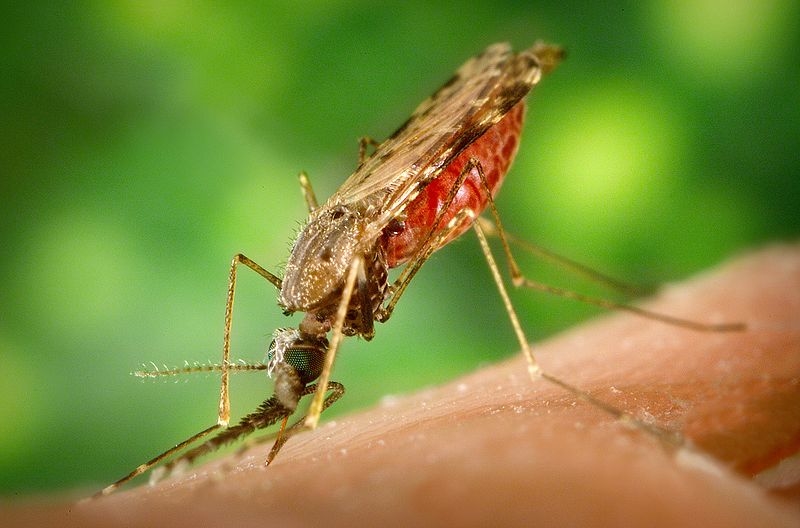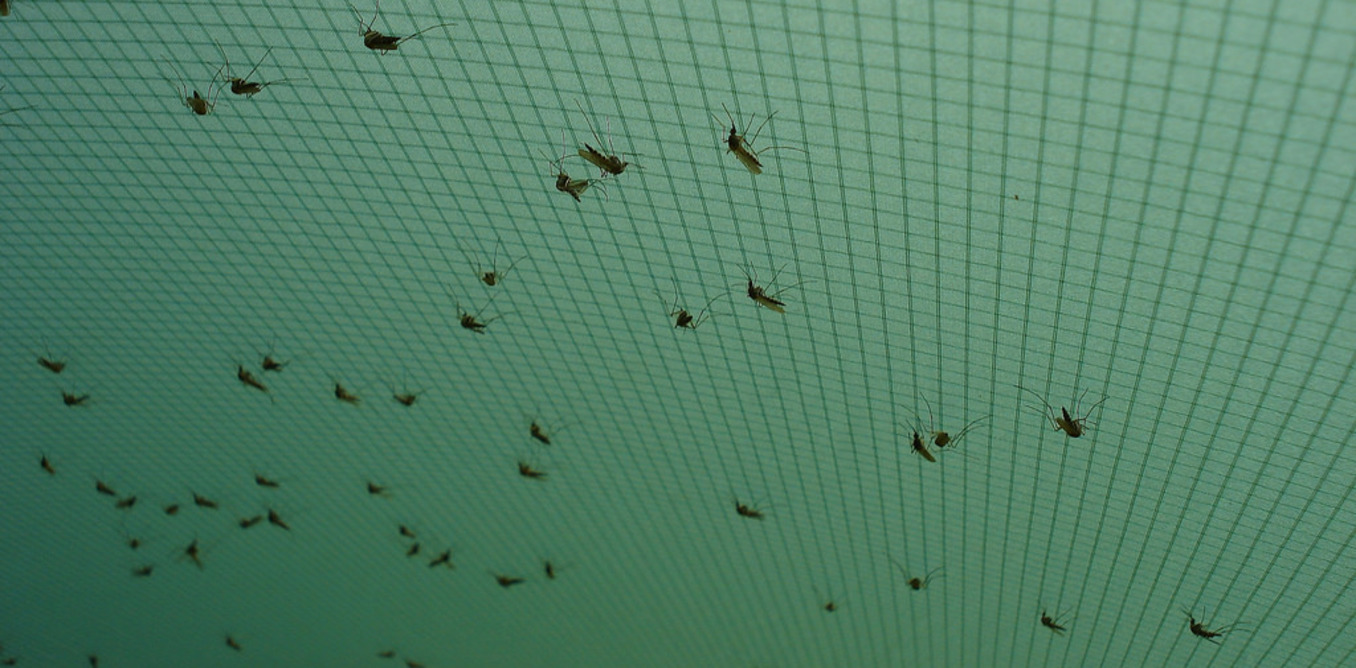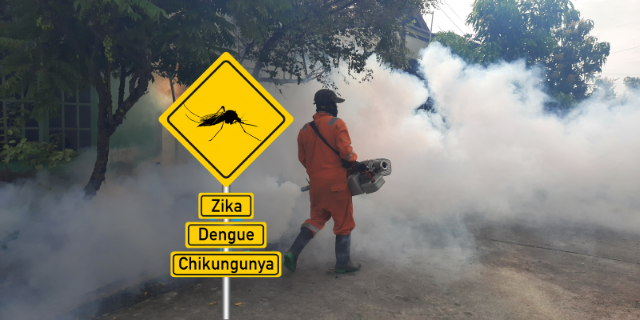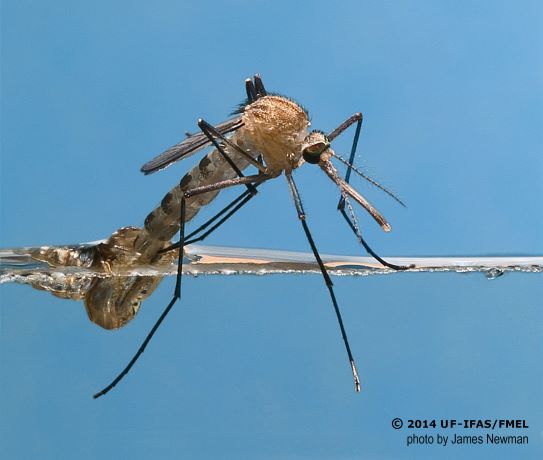Humanity has a saying: What doesn’t kill you will only make you stronger. But as it turns out, the same is true for mosquitoes.
In a recent experiment, scientists found that most mosquitoes were able to survive exposure to not one but five common insecticides used worldwide.
Professor Frederic Tripet, a medical entomologist at Keele University, said the prospect of mosquitoes becoming resistant to the chemicals humans use to kill them had long been predicted. “We know it’s been happening. But we don’t really understand the process“, said Professor Tripet.It’s a complete black box.”
Together with his colleagues, he conducted a study to decipher the process of chemical resistance of mosquitoes. “We found a common behavior in which mosquitoes can learn very quickly from their previous hits.“, said Professor Tripet.

Mosquitoes and humans in a chemical arms race
For some people, mosquitoes are just uninvited guests at barbecues. But for others, being bitten by a mosquito can cause serious illness, hospitalization, or even death.
Mosquitoes such as Aedes aegypti, also known as midges, Asian tiger mosquitoes can carry many pathogens such as viruses such as dengue, zika and chikungunya. The Culex quinquefasciatus mosquito can carry the elephant paw edema parasite.
Another dangerous mosquito species, Anopheles, can transmit the malaria parasite. They are living on a range that puts half the world’s population at risk.
There are more than 3,500 species of mosquitoes in the world in all and they are causing more than 725,000 deaths each year. These little animals are therefore dominating the rankings of the most deadly animals on the planet.
People, with violence and war, are only in second place. The third species is snakes, causing only about 50,000 deaths.
Recognizing the danger from mosquitoes, since the 1930s, people have tried to find chemicals that can kill mosquitoes. To be able to kill an adult mosquito, the chemical would first have to penetrate its hard outer shell, or cuticle.
Once inside the mosquito’s body, these chemicals must continue to attach to receptors on the cell, like a key and lock mechanism, in order to disable the mosquito’s nervous system. .
In turn, humans have found malathion, propoxur, deltamethrin, permethrin and lambda-cyhalothrin as chemicals that can do this. They are currently used in most of the world’s mosquito and insect repellants.
But the mosquito, by its very nature, is an adaptive and evolutionary species. They have also begun to develop some means of resistance to the chemical drugs that humans are taking.
For example, some species of mosquitoes have evolved by thickening the epidermis around them, making it harder for insecticides to penetrate their bodies. Others exhibit more subtle properties within the cell. They have the ability to change the receptors on the cell, change the “lock” so that the chemical can no longer open.
But there are also mosquito species that are merely behaviorally resistant, and they are less well studied. This is where Professor Tripet and his colleagues want to find out. He wanted to know what, when and where these mosquitoes did, in order to avoid the effects of human insecticides.

Suicide mosquitoes
In his research, Professor Tripet selected two species of mosquitoes that transmit the most powerful disease, A. aegypti, and C. quinquefasciatus for research.
Only female mosquitoes were selected, as male mosquitoes usually do not bite humans but only suck tree sap. Female mosquitoes are different, they need blood as an important source of protein to lay eggs.
Professor Tripet’s team first exposed the mosquitoes to one of five common insecticides, from malathion, propoxur, and deltamethrin to permethrin and lambda-cyhalothrin.
The dose of the drug was limited to enough to dislodge the mosquitoes, killing a few of them, but not enough to kill all the mosquitoes. As for the individuals that survived the exposure, Professor Tripet continued to place them in a pipe. At one end of it, he dropped a rat as bait.
Separating between mosquitoes and mice is a net that has been sprayed with the same insecticide that they used before. The purpose is to see if the mosquitoes, after being exposed to chemicals, dare to go through this net to suck the blood of mice or not?
As a result, most mosquitoes don’t dare to do that. But still a significant number, 15% of A. aegypti and 12% of C. quinquefasciatus, bravely flew through the insecticide-filled net to reach their prey.
In a controlled trial with the same number of mosquitoes of both species but never exposed to the chemical, up to 58% of A. aegypti and 54% of C. quinquefasciatus mosquitoes chose to jump through the net.
But the difference also occurs here. Mosquitoes that have been sprayed with the chemical in the past have twice the survival rate as those that have never been exposed to the chemical. This shows that they have been able to adapt to this insecticide.

In another set of experiments, the researchers gave mosquitoes a choice of two boxes to rest in. One smelled of mosquito repellent, while the other smelled of silicone oil or olive oil.
Professor Tripet said mosquitoes that had been exposed to the insecticide previously chose the box that smelled of oil. “They don’t want to sit in a box that smells like mosquito repellent anymore“, he said.
This means that mosquitoes have been able to adapt to chemicals by recognizing and avoiding contact with them.
“Insects, like so many other living things, have the ability to learn what’s harmful to them if they can survive a first encounter.“, said entomologist Dr. Nancy Troyano.Avoidance behavior based on prior contact has also been demonstrated in other insects, such as cockroaches.”
And when the insecticides don’t kill them, these mosquitoes will continue to live longer, reproduce more, and more than likely in the future you’ll have to deal with a species of mosquito that’s already smarter, Prof. Tripet said.
Small insect, big behavior change
Tanya Russell, a researcher at James Cook University, said Professor Tripet’s new study reaffirmed what she and other medical entomologists around the world have long worried about.
“I’m really happy to see articles starting to analyze how mosquitoes change their behavior in this way“, said Russell. She and her colleagues also previously monitored a population of malaria-carrying Anopheles mosquitoes in the Solomon Islands and found that the mosquitoes changed their feeding habits to avoid other species of mosquitoes. Insecticides are applied on mosquito nets and on walls in houses.

Unlike midges, which often bite people during the day, Anopheles mosquitoes are usually only active at night. But in the Solomon Islands, they start turning to forage during the day, when people are outdoors, and especially around dusk when they have to cook and don’t have the protection of mosquito nets or insecticides, Russell said. speak.
In the beginning, perhaps only a few Anapholes knew how to push their active time of the day earlier. But gradually, this behavior was learned by the entire local mosquito population.
Russell said population-level changes in mosquito behavior could be observed within 12 months. “They happen very, very, very quickly“, she said.
So how can we better control mosquitoes?
New research shows that some species of mosquitoes can learn from their own experiences and change their behavior accordingly. But can this be passed on to their descendants?
“Of course it’s possible, part of that behavior is something that mosquitoes have inherited over time, when natural selection works.“, said Professor Tripet. He guessed that the mosquito population in West Africa “now resistant to all the mosquito repellents you throw at them” has accumulated this ability in his genome.
This will make it difficult to control mosquito populations in other areas, and disease can then increase again.

The new study highlights the importance of monitoring mosquitoes in the tropics and subtropics – not only looking for physiological variations but also behavioral variations, said Dr.
Now, perhaps disease control agencies should focus on tools or techniques that help suppress mosquito populations that do not depend on the behavior of adult females.
For example, they should aim to kill mosquitoes from their larval stage, while they are still larval larks in the water.
Some species of mosquitoes, including A. aegypti, prefer to lay their eggs in small containers of water, so clearing stumps and the like could also help control local mosquito populations, Russell suggests. idea.
Refer to Forbes, Abc
